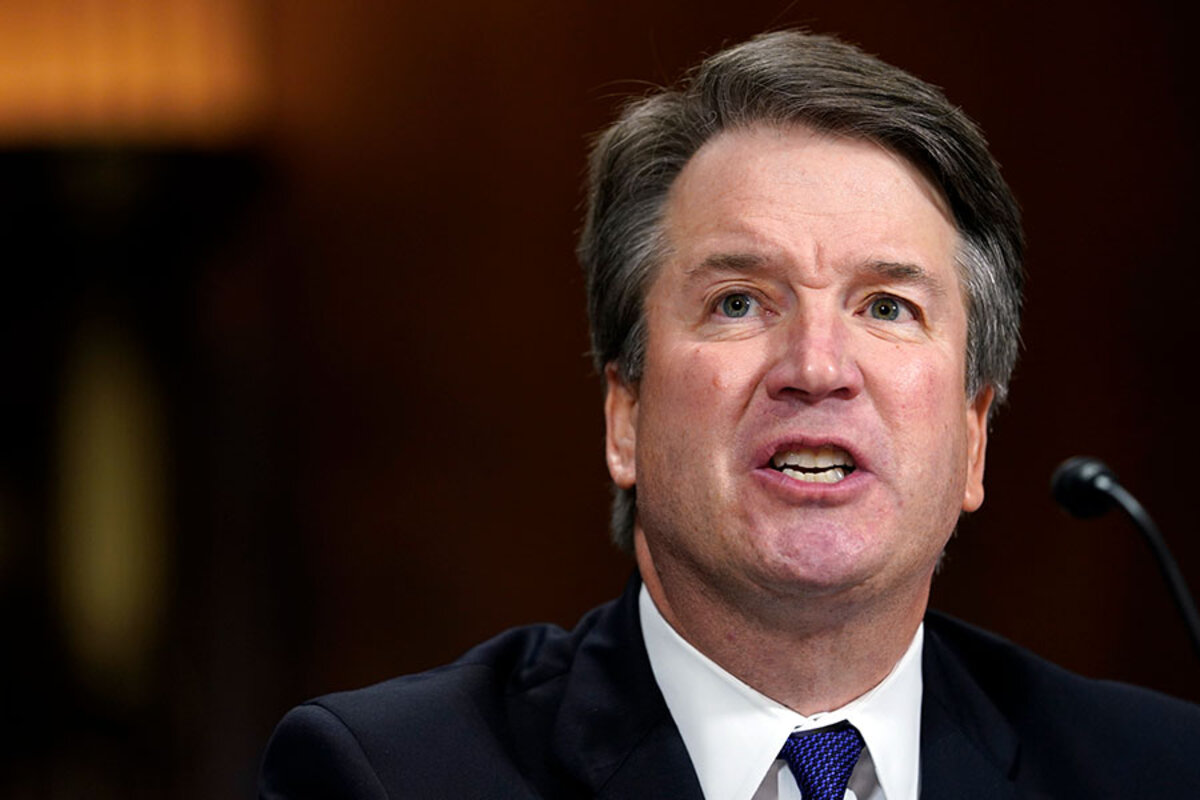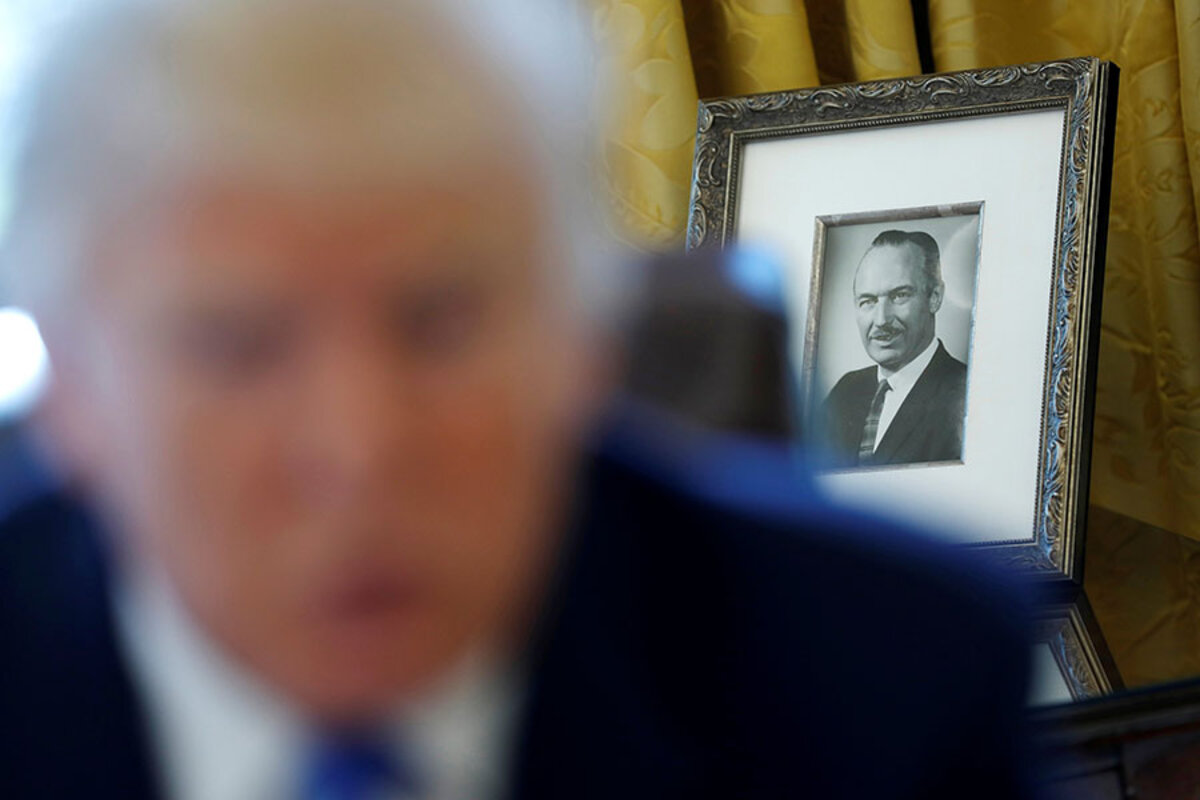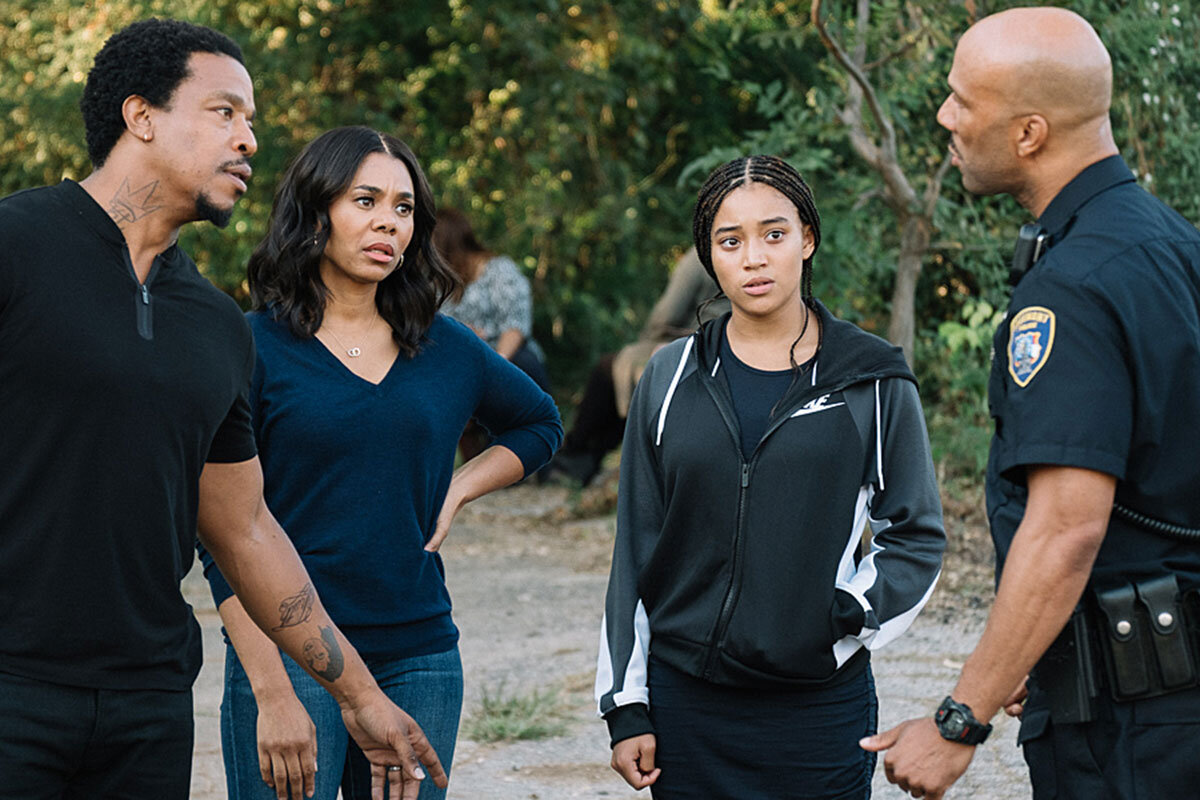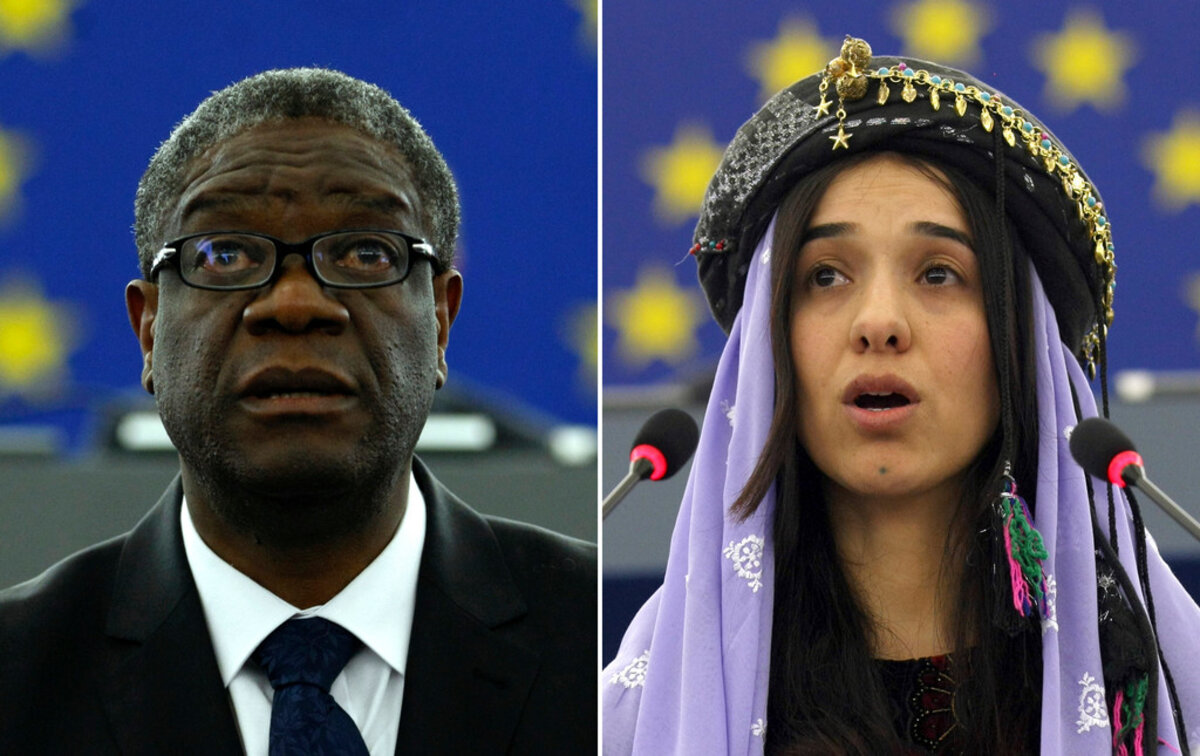During his first and second hearings before the Senate Judiciary Committee, Judge Brett Kavanaugh showed two distinct sides: a cool-headed umpire and a fiery partisan. The question now is, which one is likely to show up at the Supreme Court?
Monitor Daily Podcast
- Follow us:
- Apple Podcasts
- Spotify
- RSS Feed
- Download
 Clayton Collins
Clayton Collins
Privilege and power again ran through US news headlines in a week that happens to end exactly one year since the day #MeToo accelerated worldwide. They are high-stakes political stories. We’ll get to a couple of them today.
In the periphery we saw an American first lady begin a multination trip to Africa, a continent ignored (at best) by most US administrations. (One arguably underreported crisis there: Congo’s mounting, double-barreled struggle with conflict and Ebola.)
And today a pair of less conventionally powerful players jointly won the Nobel Peace Prize. Denis Mukwege is a Congolese doctor who has stood against rape and other abuses. Part of a broad, noble cohort of tireless physicians there, he is known as “the man who mends women.” Nadia Murad is a Yazidi rights campaigner who stared down ISIS. The two were cited for “their efforts to end the use of sexual violence as a weapon of war and armed conflict.”
Their stories are portraits in compassion.
Ms. Murad – the subject of a Monitor Weekly cover story last year – fought through fear and exhaustion to help other women of her tiny ethnic minority who had been held captive and raped, as she had been before escaping. Her work is heavy, but it buoys her. “Whenever I get a call from the camps in Iraq that … so-and-so’s daughter was liberated, I feel overwhelming joy again,” she told the Monitor’s Kristen Chick at the time.
In recognizing Dr. Mukwege, Berit Reiss-Andersen, chair of the Norwegian Nobel Committee, hit a note that goes to the universality of both winners’ work. “His basic principle,” she said, “is that ‘justice is everyone’s business.’ ”
Now to our five stories for your Friday, including a look at a key test of the power of bipartisan appeal and at how laser mapping technology is quietly changing how we see the world.










